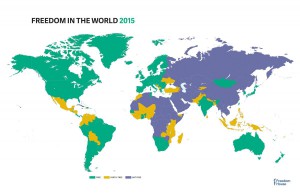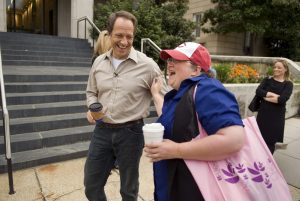


I was fortunate to attend some of “Reagan: A Centenary Retrospective” at Hillsdale College from October 2 – 5. I was present for excellent lectures by Craig Shirley and Peter Robinson.
Shirley is the author of Reagan’s Revolution: The Untold Story of the Campaign That Started It All and Rendezvous with Destiny: Ronald Reagan and the Campaign That Changed America, a book I reviewed on the PowerBlog.
Robinson, a former speechwriter in the Reagan White House, authored the famous “Tear Down this Wall” address and the book How Ronald Reagan Changed My Life. I have read all three of the above books and I can say they are easily top tier accounts on Reagan.
While there is so much to share from these two lectures, I’ll offer just a few notes. Shirley is the Reagan author who makes the most mention of Reagan’s admiration for Alexander Solzhenitsyn. The great Russian writer’s belief “that man’s purpose is as a divinely inspired agent to live out creation” had a deep resonance with the former president. At Reagan’s death, Solzhenitsyn eulogized him from Russia in 2004 saying,
In July 1975, I concluded my remarks in the Reception Room of the U.S. Senate with these words: ‘Very soon, all too soon, your government will not just need extraordinary men – but men with greatness. Find them in your souls. Find them in your hearts. Find them within the breadth of and depth of your homeland.’ Five years later, I was overjoyed when just such a man came to the White House. May the soft earth be a cushion in his present rest.
Robinson offered a conservative estimate that Reagan wrote over a half a million words on his own for public consumption. “Politicians have a network but Ronald Reagan had words. But words that convinced people that he was right,” added Robinson. He also noted that very few of the letters Reagan wrote in the White House were to people of prominence, but rather most of the letters he penned were to ordinary Americans. plimented Reagan by saying his “speechwriters just mimicked and parroted the sound and substance Reagan already created.”
Robinson was asked about the deep respect Ronald Reagan showed for President Calvin Coolidge. Reagan of course was at times mocked by the Washington press corps for hanging a Coolidge portrait in the White House. Robinson declared,
Ronald Reagan could remember Coolidge as a boy or young man. Coolidge loved words and was a beautiful writer and Reagan resonated not just with his ideology but his love for words.
Earlier this year I authored mentary for the Reagan Centennial titled, “Deeper Truths Magnify Reagan Centennial.”









